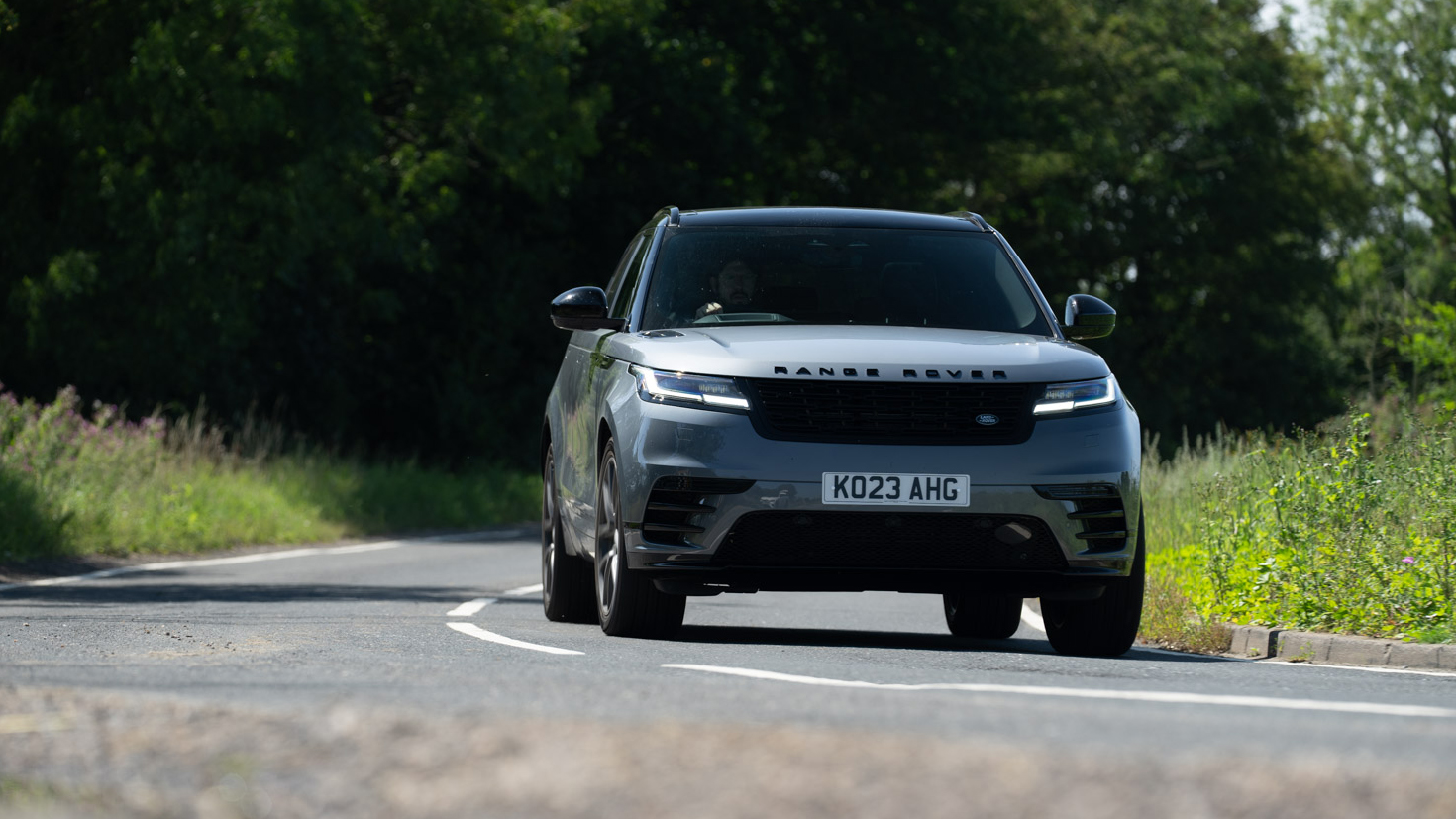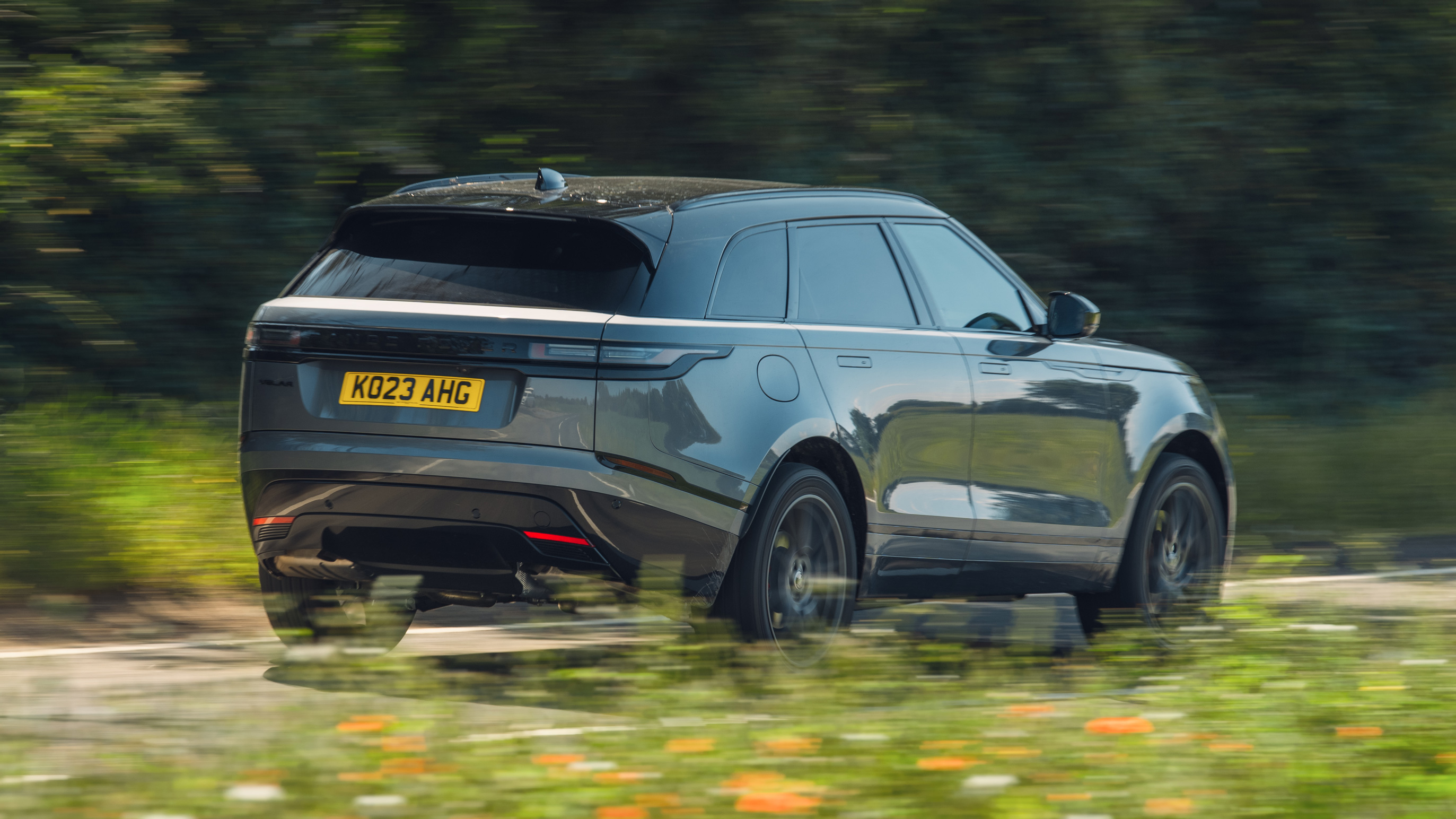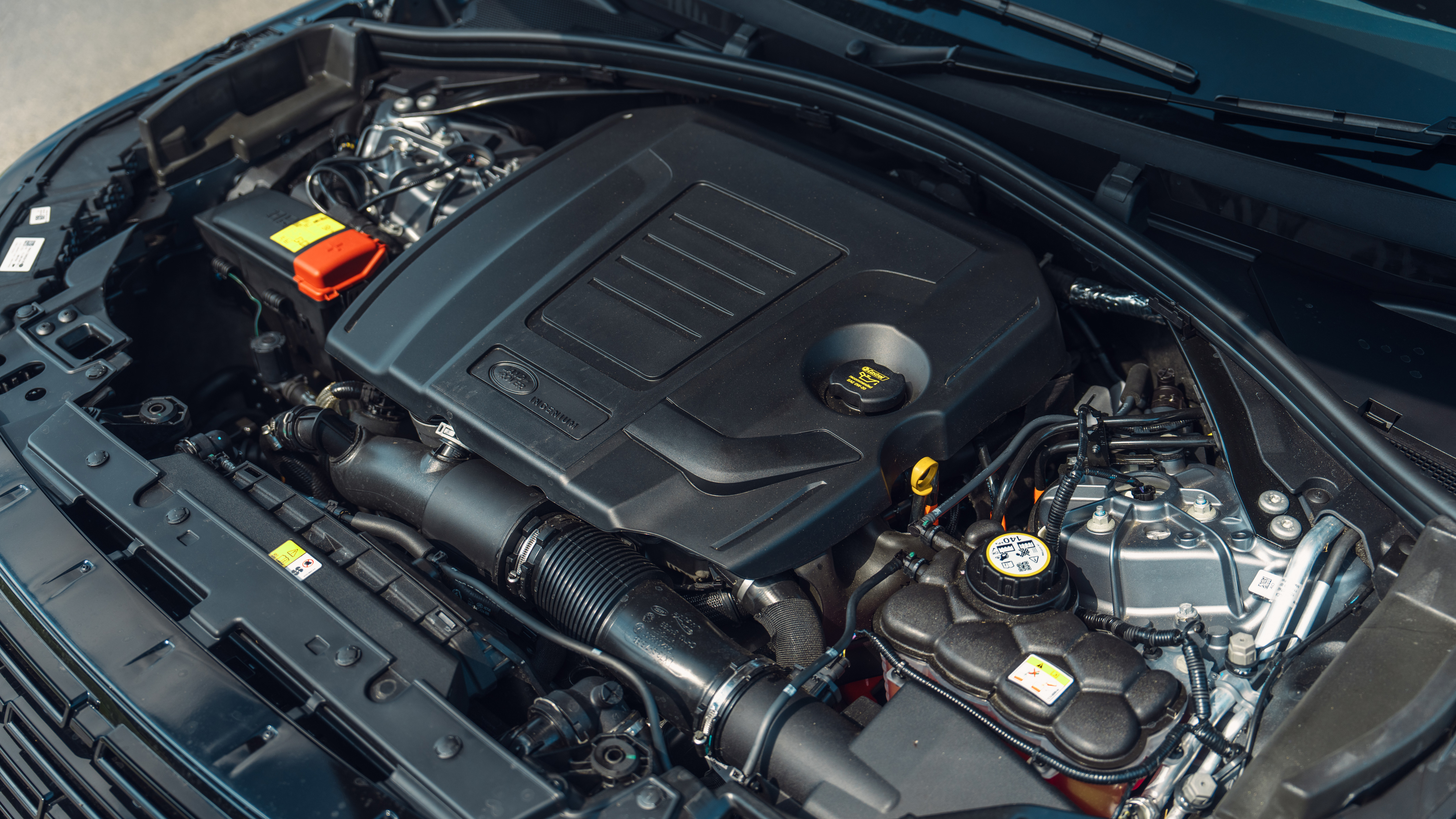
Good stuff
Achingly stylish, improved engines and plug-in option, relaxed and refined, superb off-road
Bad stuff
Interior is spec-dependent, expensive once you start climbing the range
Overview
What is it?
The Velar is by most standards a large luxury SUV. But Range Rover offers more vehicles above it: the Range Rover Sport and then the Range Rover proper – which even has a LWB version. As if that weren't enough, there are the more practical options from Land Rover: the Defenders in various lengths, and Discovery.
Seems like the Velar is sitting in a pretty tight niche then, and sure enough it doesn't sell as well as the RR Sport or Evoque. The fact you see it less frequently has helped its design maintain the woah-factor it had way back in 2017.
For 2023 it has had a set of revisions, but justifiably no change outside. Indoors, it gets the company's latest big-screen command-and-control system. It's slick and clever, so why do we find ourselves hankering for the old system? Click the Interior tab of this review for the answer.
What are the rivals?
It plays against the premium manufacturers you'd expect. The Mercedes GLE Coupe or Audi Q8, or, in a 'sportier' bent the BMW X6 and Maserati Grecale. Even a Porsche Cayenne Coupe. Like the Velar, all expensive and heavy cars.
Smooth, pared-back and slimmed-down style takes priority over absolute space. The Velar’s silhouette is quite fast, marked by a rising belt, falling roof, pinched tail and a lot of screen rake. So while rear seat legroom is OK, headroom in the back isn't for giants and the boot is shallower than some.
Is the design ageing well?
Proportions are great and the surfaces are pure as snow, all helping stave off the assault of passing years. It’s largely naked of step-lines. If you don't like fakery, look away from the 'vents' on the bonnet and below the door mirrors. But they do slightly reduce the visual mass of the Velar, and they're meticulously shaped to match the front and rear light clusters.
The cabin is even more visually pared back. Looks good in photos but be careful to check you can actually live with it. It's so minimalist that your sheer presence, never mind your phones, cups and bottles, besmirches the design horribly.
What's underneath?
The underbody and suspension are largely aluminium, shared with the Jaguar F-Pace, rather than the Range Rover and Range Rover Sport. So it doesn’t have a low-ratio transfer box, nor the decoupling anti-roll bars you can get on the Sport. So it’s not fully specced to Land Rover’s outermost off-roader level. But by most standards it’s massively capable in the wilderness. And easily capable enough for its buyers, who’d buy a £1,500 Canada Goose jacket to go to the pub, not to trek across glaciers.
For 2023, the plug-in hybrid version, called P400e, has a slightly higher battery capacity so it can do a WLTP-rated 38 miles all-electric, or about 25-30 real-world. It also shuffles between electric and piston drive far more smoothly than most PHEVs. The petrol engine in that one is a four-cylinder 2.0-litre, not to be confused with the six-cylinder in the non-plug P400, which costs about the same.
We’ve tested it alongside the D300 diesel, and the four-cylinder D200 diesel.
What's the verdict?
For the driver, the Velar is about relaxed security rather than engagement. Let it lower your heartbeat and enjoy the panoramic view of the scenery. And the new range of engines have futureproofed it a little longer.
The newly installed display/control system is mostly good to use and striking to look at. Just be careful with your interior trim choices.
The Velar majors on style but it’s still a useful car. It’s roomy enough for a family, not so big it’s awkward in cities, and capable of unusual off-road and towing feats.
Where rivals from Mercedes, Audi and BMW just look and feel like taller versions of their saloons, a Range Rover is still a distinctive thing.
The Rivals
Trending this week
- Fail of the Century
Fail of the Century: 42 of the worst cars from 2000 to now
- Long Term Review
Learning to slide a motorbike is terrifying and addictive









